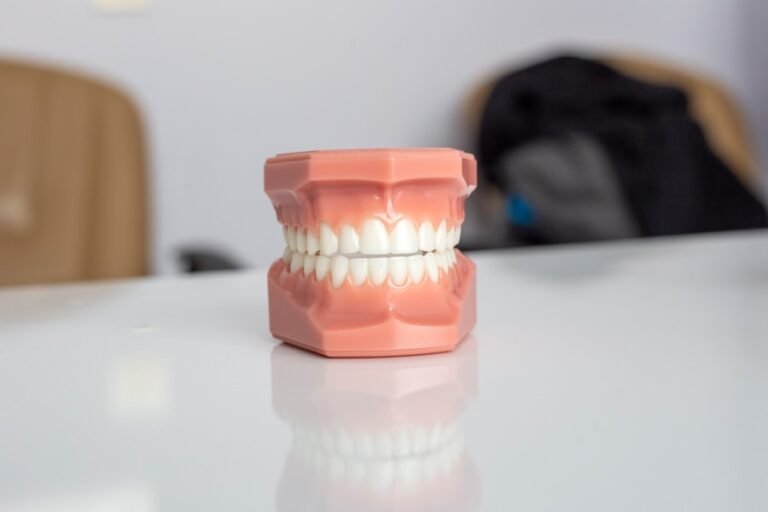DIY Diarrhea Relief: 5 Effective Home Remedies to Try Today
Diarrhea is a common digestive issue that is characterized by loose, watery stools and frequent bowel movements. It can be caused by a variety of factors, including viral or bacterial infections, food poisoning, medication side effects, and underlying health conditions such as irritable bowel syndrome or inflammatory bowel disease. Diarrhea can also be triggered by stress, anxiety, and dietary changes. The condition can be acute, lasting for a few days, or chronic, persisting for several weeks or more. It can be accompanied by symptoms such as abdominal cramps, bloating, nausea, and dehydration.
Diarrhea occurs when the intestines are unable to absorb water or when they secrete excess fluids. This leads to an imbalance in the normal functioning of the digestive system, resulting in the rapid passage of stool through the colon. The body’s natural response to expel harmful substances or pathogens from the gastrointestinal tract can also contribute to the development of diarrhea. It is important to note that diarrhea can be a sign of a more serious underlying health issue, especially if it is persistent or accompanied by other concerning symptoms. Understanding the causes and symptoms of diarrhea is crucial in determining the appropriate treatment and management strategies.
Home Remedies for Diarrhea
There are several home remedies that can help alleviate the symptoms of diarrhea and promote faster recovery. One of the most important steps in managing diarrhea at home is to stay hydrated. Drinking plenty of fluids, such as water, herbal teas, and electrolyte-rich beverages like coconut water or sports drinks, can help replace lost fluids and prevent dehydration. Consuming clear broths and soups can also provide essential nutrients and electrolytes to support the body’s healing process.
In addition to staying hydrated, following a bland diet can help ease digestive discomfort and reduce the frequency of bowel movements. This may include consuming easily digestible foods such as bananas, rice, applesauce, and toast (BRAT diet), as well as plain crackers, boiled potatoes, and steamed vegetables. Avoiding spicy, fatty, and high-fiber foods, as well as dairy products and caffeine, can also help minimize irritation to the digestive system. Probiotic-rich foods like yogurt and kefir can aid in restoring the balance of healthy gut bacteria and promoting better digestion. Herbal remedies such as ginger, peppermint, and chamomile can also provide relief from nausea, cramps, and inflammation associated with diarrhea.
The Benefits of DIY Diarrhea Relief
Engaging in do-it-yourself (DIY) diarrhea relief methods can offer several benefits for individuals seeking natural and cost-effective solutions for managing their digestive health. DIY remedies often involve using readily available ingredients and simple techniques that can be easily incorporated into daily routines. This can empower individuals to take control of their own health and well-being without relying solely on pharmaceutical interventions. DIY diarrhea relief methods also tend to be gentler on the body and less likely to cause adverse side effects compared to over-the-counter medications.
Furthermore, DIY diarrhea relief approaches often focus on holistic healing and addressing the root causes of digestive issues rather than just masking symptoms. This may involve making dietary and lifestyle changes, practicing stress-reducing techniques such as meditation or yoga, and using natural supplements or herbal remedies to support overall gut health. By adopting a proactive approach to managing diarrhea through DIY methods, individuals can gain a deeper understanding of their body’s needs and develop long-term strategies for preventing future episodes of digestive discomfort.
Precautions and Considerations
While DIY diarrhea relief methods can be beneficial for many individuals, it is important to exercise caution and consider certain factors before trying out home remedies. It is crucial to identify the underlying cause of diarrhea before attempting to self-treat the condition, especially if it is persistent or accompanied by severe symptoms such as fever, blood in the stool, or significant weight loss. Consulting with a healthcare professional is recommended to rule out any serious health issues and receive personalized guidance on the most appropriate treatment options.
Additionally, some home remedies for diarrhea may not be suitable for everyone, particularly those with pre-existing medical conditions or allergies. Certain herbal supplements and natural remedies may interact with medications or exacerbate underlying health issues. It is important to research and understand the potential risks and contraindications associated with DIY diarrhea relief methods before incorporating them into one’s wellness routine. Pregnant individuals, young children, and older adults should also exercise caution when using home remedies for diarrhea and seek guidance from a healthcare provider.
When to Seek Medical Help
While many cases of diarrhea can be effectively managed at home with self-care measures, there are certain situations where seeking medical help is necessary. If diarrhea persists for more than a few days despite home remedies, or if it is accompanied by severe abdominal pain, high fever, dehydration symptoms (such as excessive thirst, dry mouth, dark urine), or bloody or black stools, it is important to consult a healthcare professional promptly. These symptoms may indicate a more serious underlying condition that requires medical attention.
Individuals with weakened immune systems, chronic health conditions such as diabetes or kidney disease, or a history of gastrointestinal disorders should also seek medical advice if they experience prolonged or recurrent episodes of diarrhea. Healthcare providers can conduct diagnostic tests to determine the cause of diarrhea and recommend appropriate treatment options based on the individual’s medical history and specific needs. In some cases, prescription medications or interventions such as intravenous fluids may be necessary to manage severe or persistent diarrhea.
Tips for Preventing Diarrhea
In addition to managing diarrhea when it occurs, taking proactive steps to prevent its onset can help maintain optimal digestive health. Practicing good hygiene habits such as washing hands thoroughly with soap and water before eating or preparing food, after using the bathroom, and after handling pets can reduce the risk of contracting infectious pathogens that can cause diarrhea. Avoiding consuming contaminated food or water, particularly when traveling to regions with poor sanitation, can also help prevent foodborne illnesses that lead to diarrhea.
Maintaining a balanced diet that includes plenty of fiber-rich fruits and vegetables, whole grains, lean proteins, and healthy fats can support regular bowel movements and promote overall gut health. Staying hydrated by drinking an adequate amount of water throughout the day can also help prevent dehydration and support proper digestion. Managing stress through relaxation techniques such as deep breathing exercises, meditation, or engaging in enjoyable activities can contribute to better overall well-being and reduce the likelihood of stress-induced diarrhea.
Taking Control of Your Digestive Health
In conclusion, understanding the causes and symptoms of diarrhea is essential for effectively managing this common digestive issue. Home remedies for diarrhea such as staying hydrated, following a bland diet, and using natural remedies can provide relief from symptoms and support faster recovery. Engaging in DIY diarrhea relief methods offers several benefits, including empowerment in managing one’s own health and addressing the root causes of digestive discomfort. However, it is important to exercise caution and consider individual precautions before trying out home remedies for diarrhea.
Knowing when to seek medical help for persistent or severe diarrhea is crucial in receiving timely intervention and preventing potential complications. Taking proactive steps to prevent diarrhea through good hygiene practices, a balanced diet, adequate hydration, and stress management techniques can contribute to maintaining optimal digestive health. By incorporating these strategies into daily routines and seeking professional guidance when needed, individuals can take control of their digestive health and enjoy improved overall well-being.







